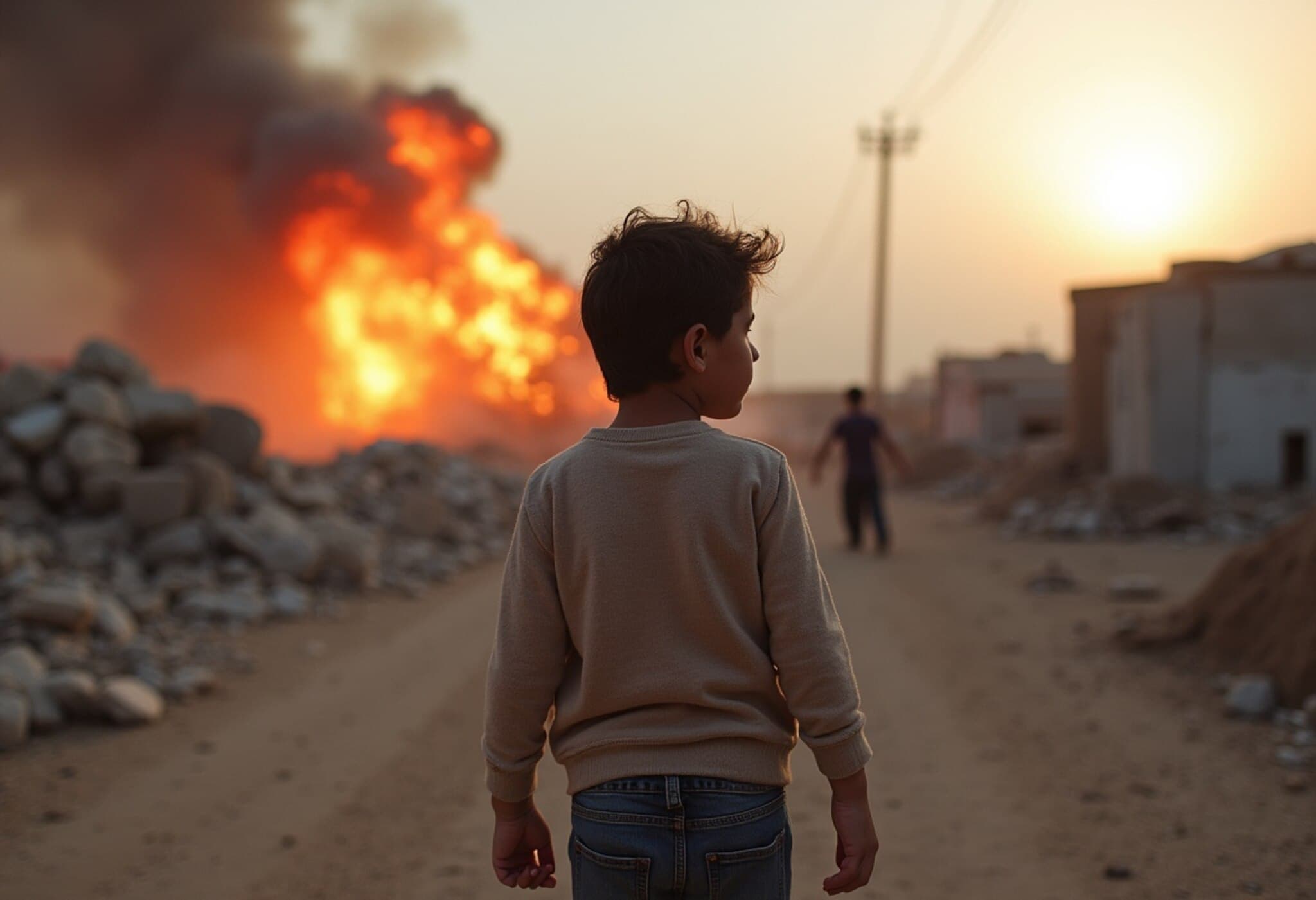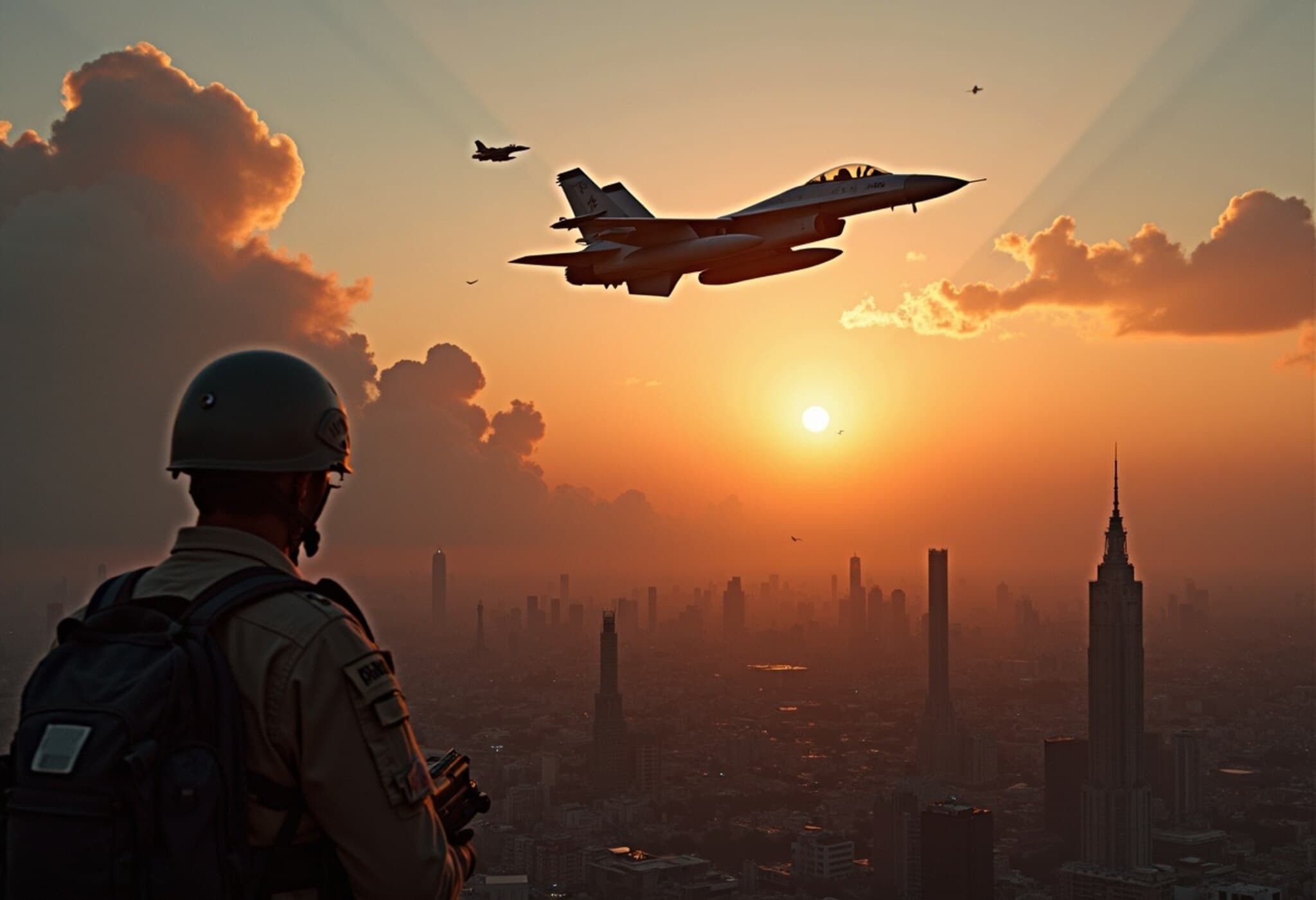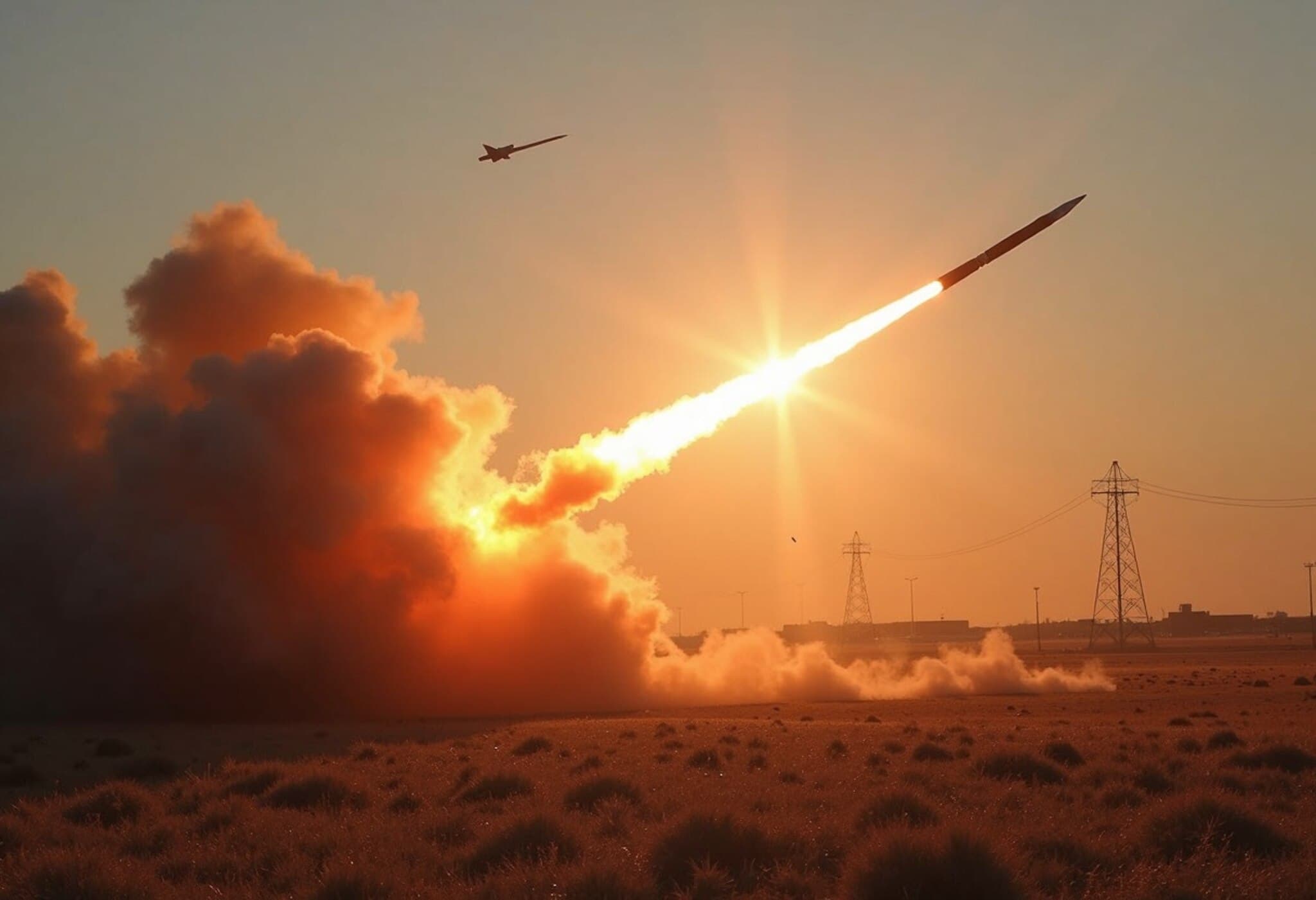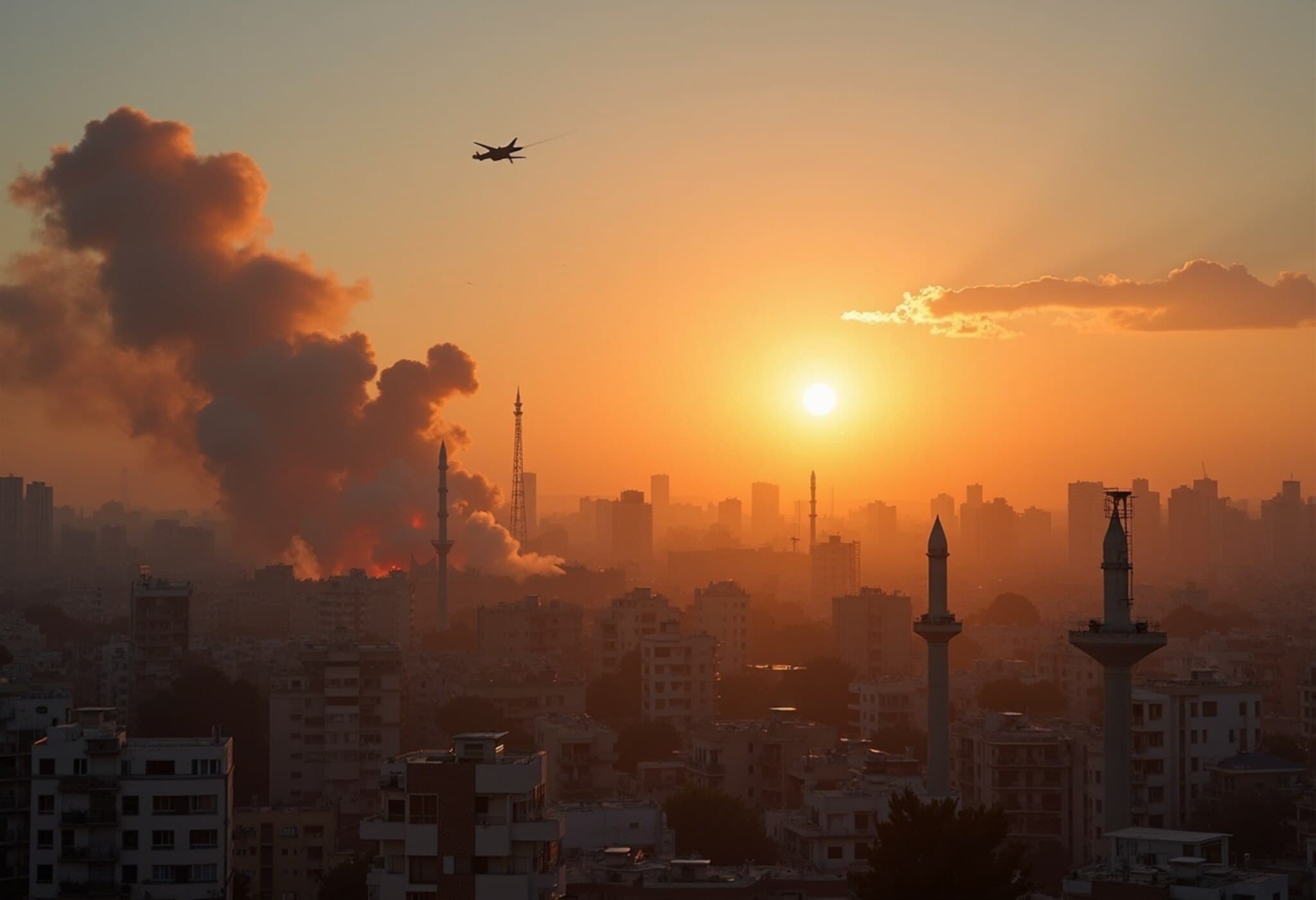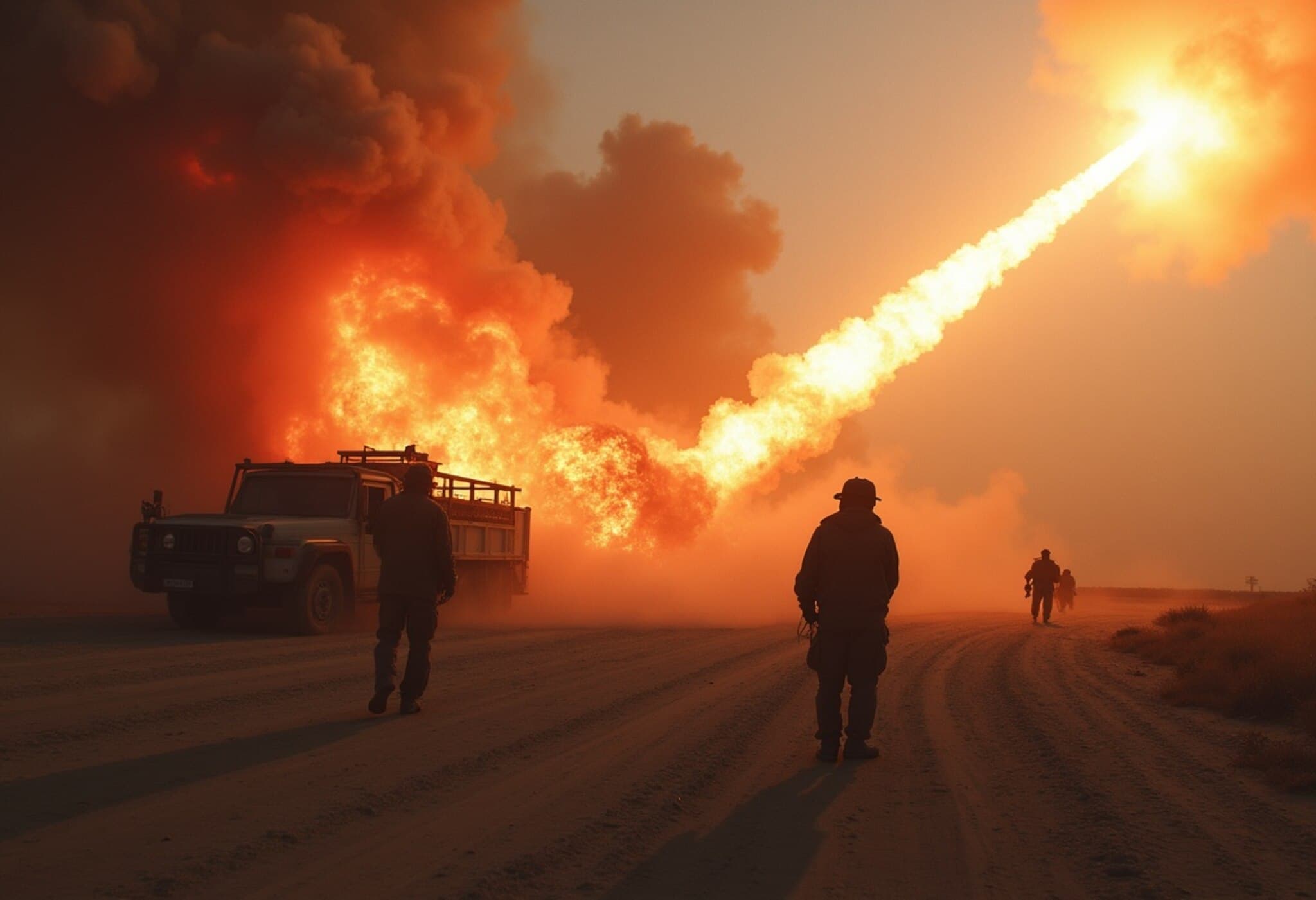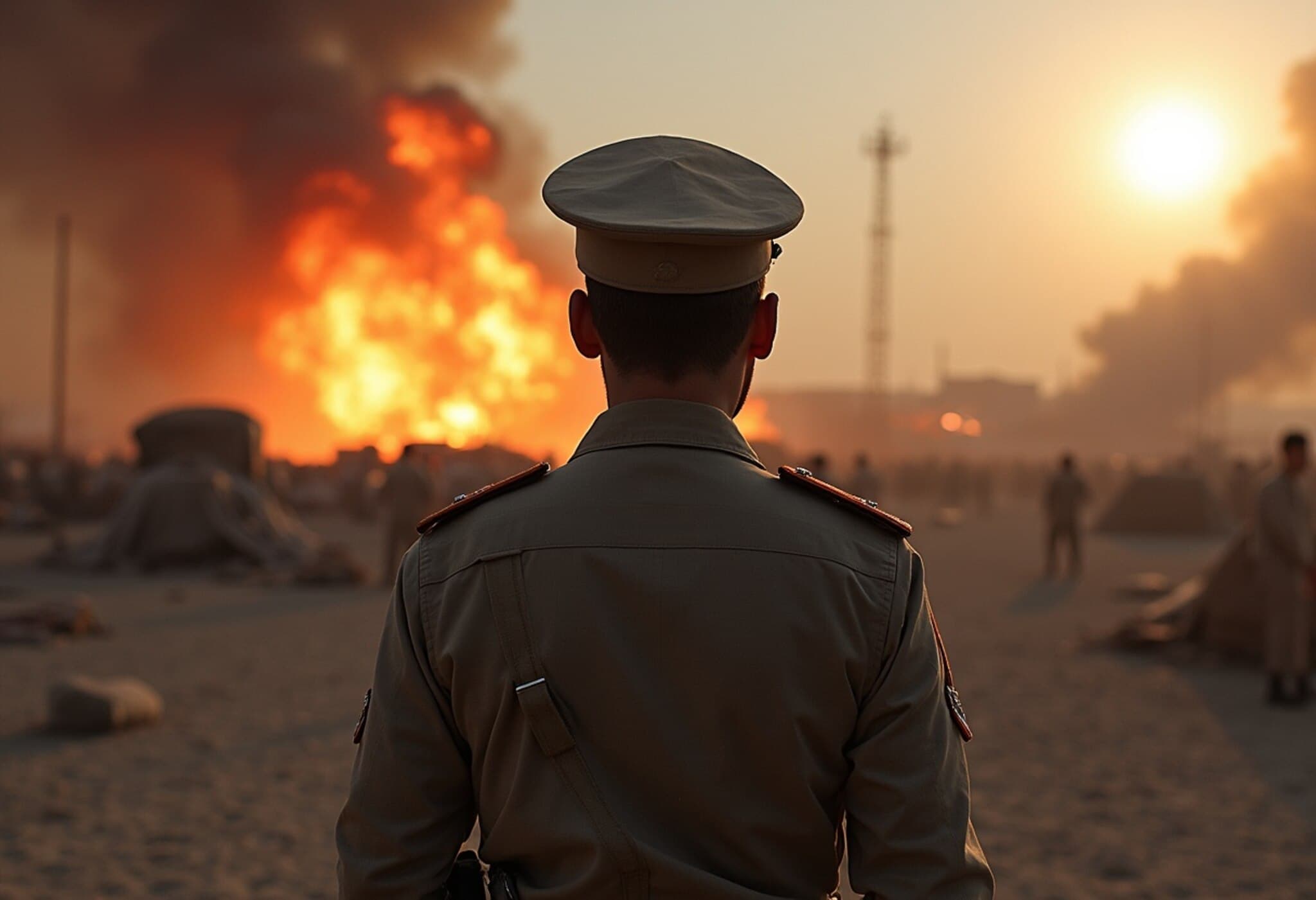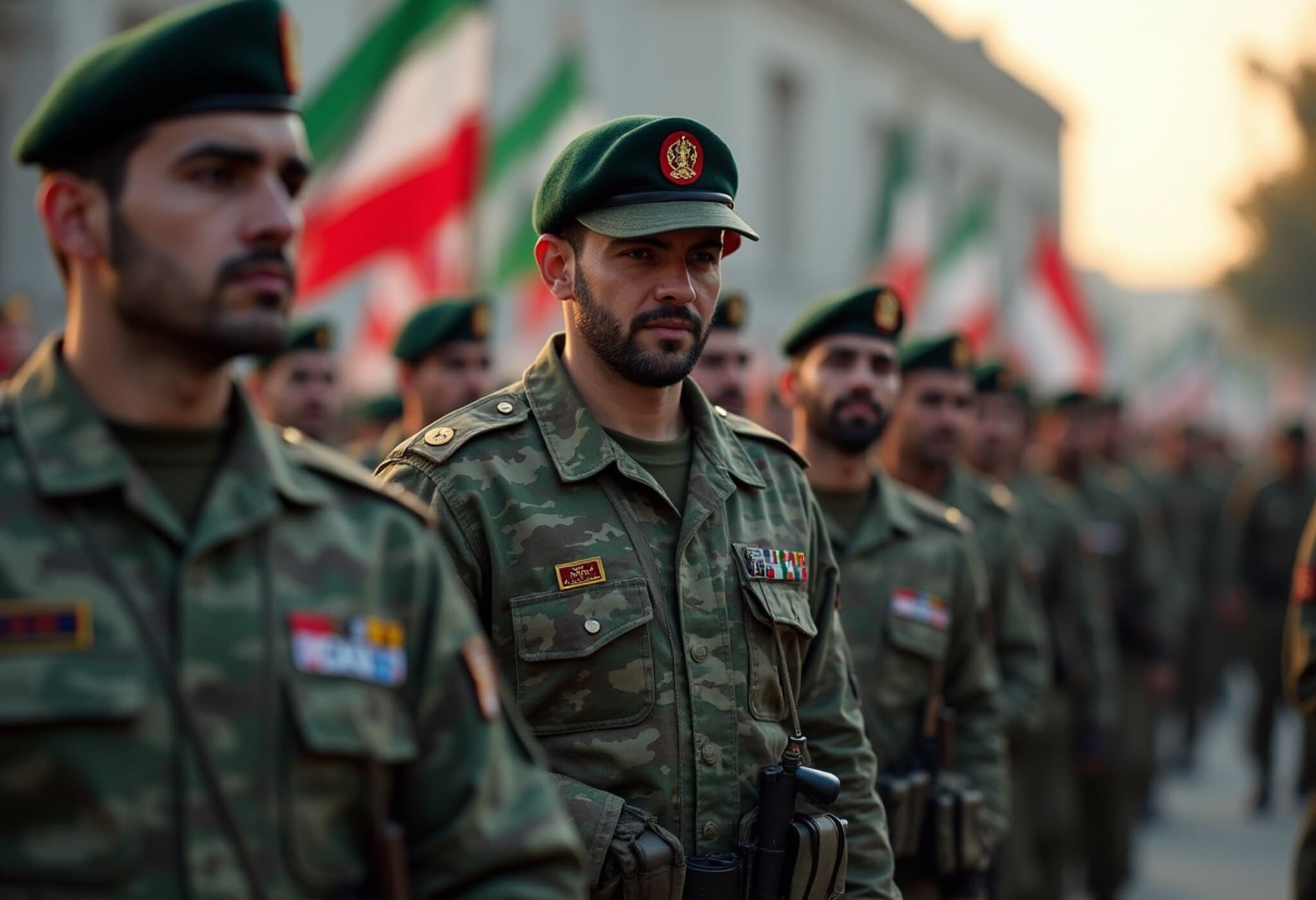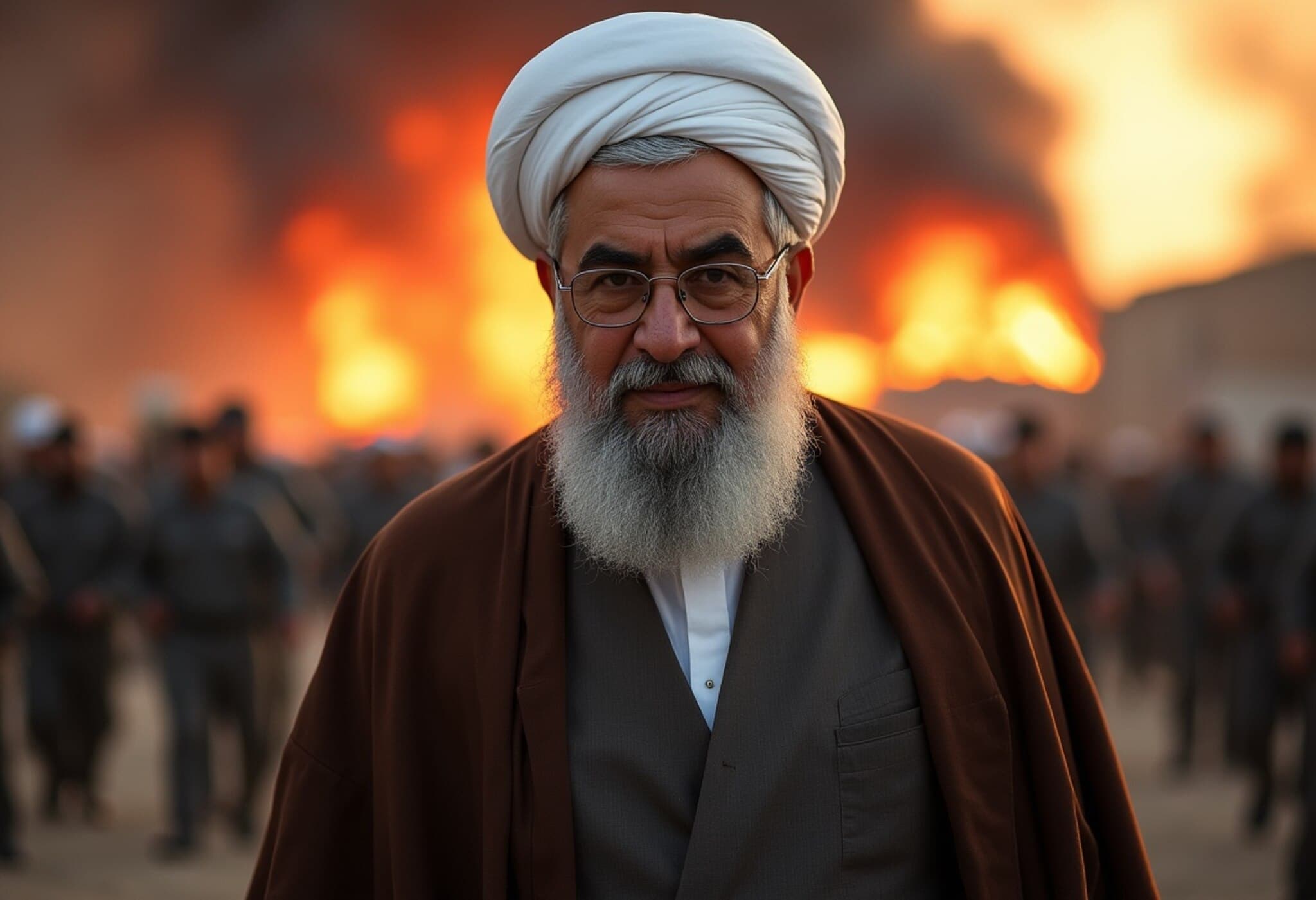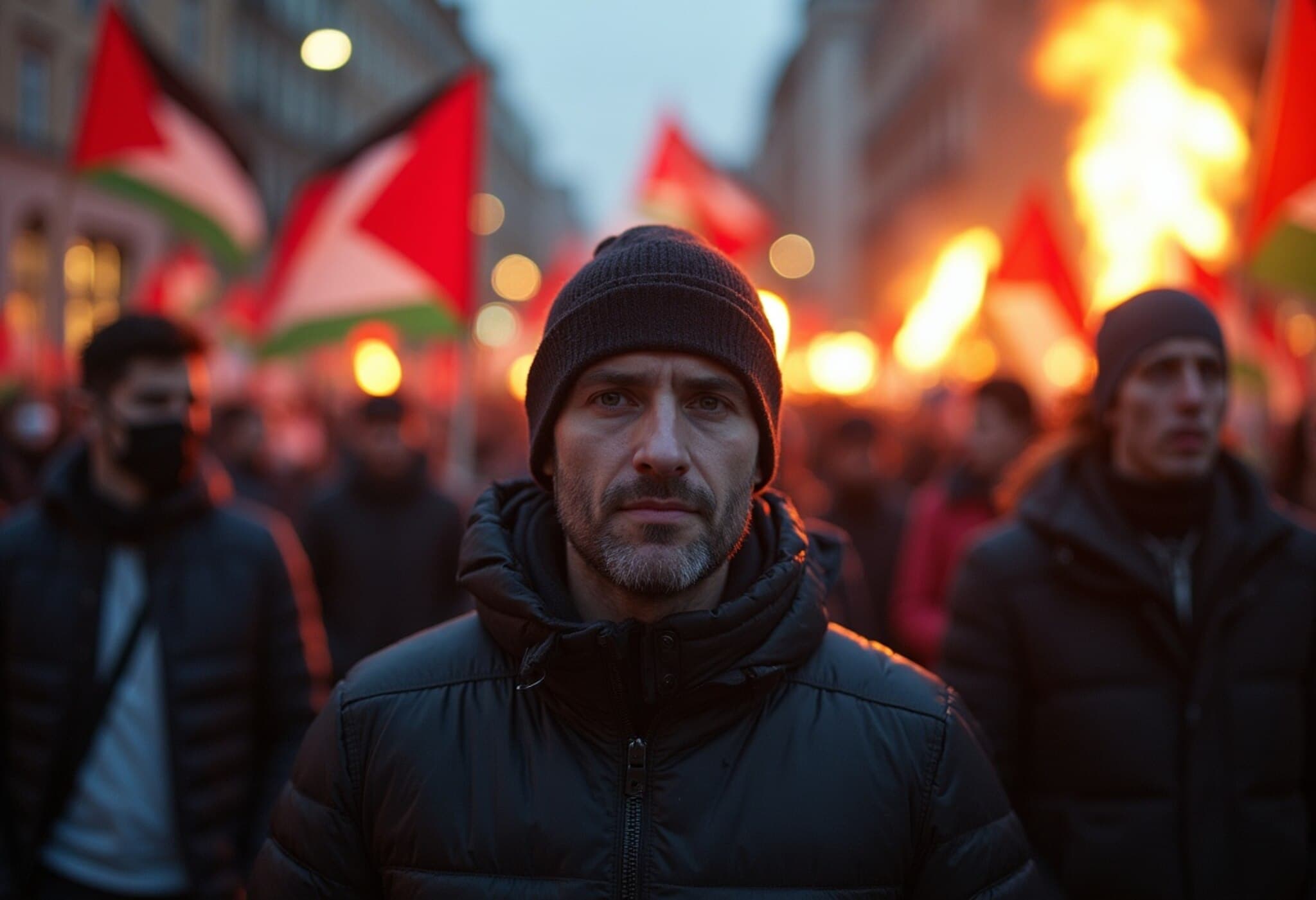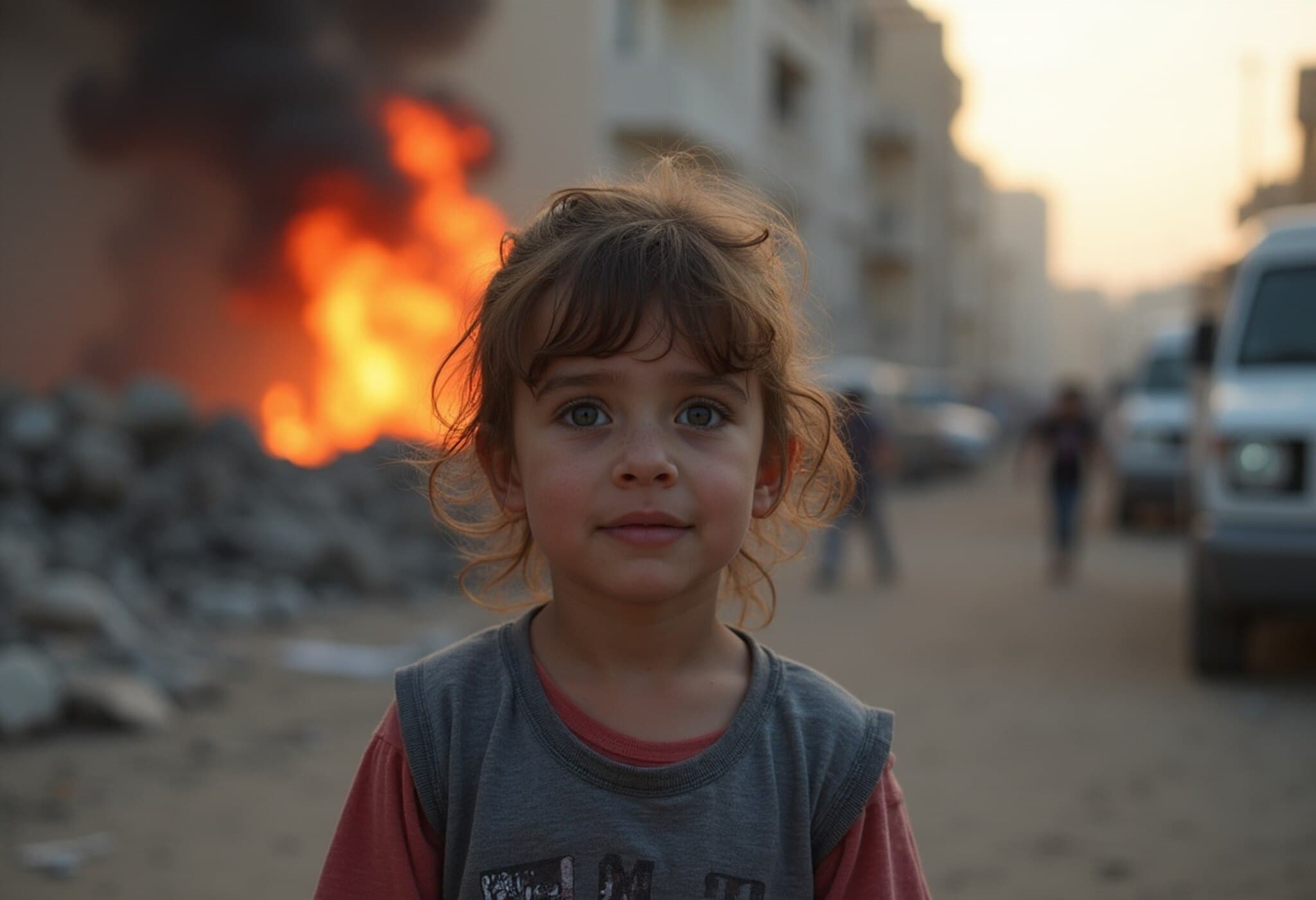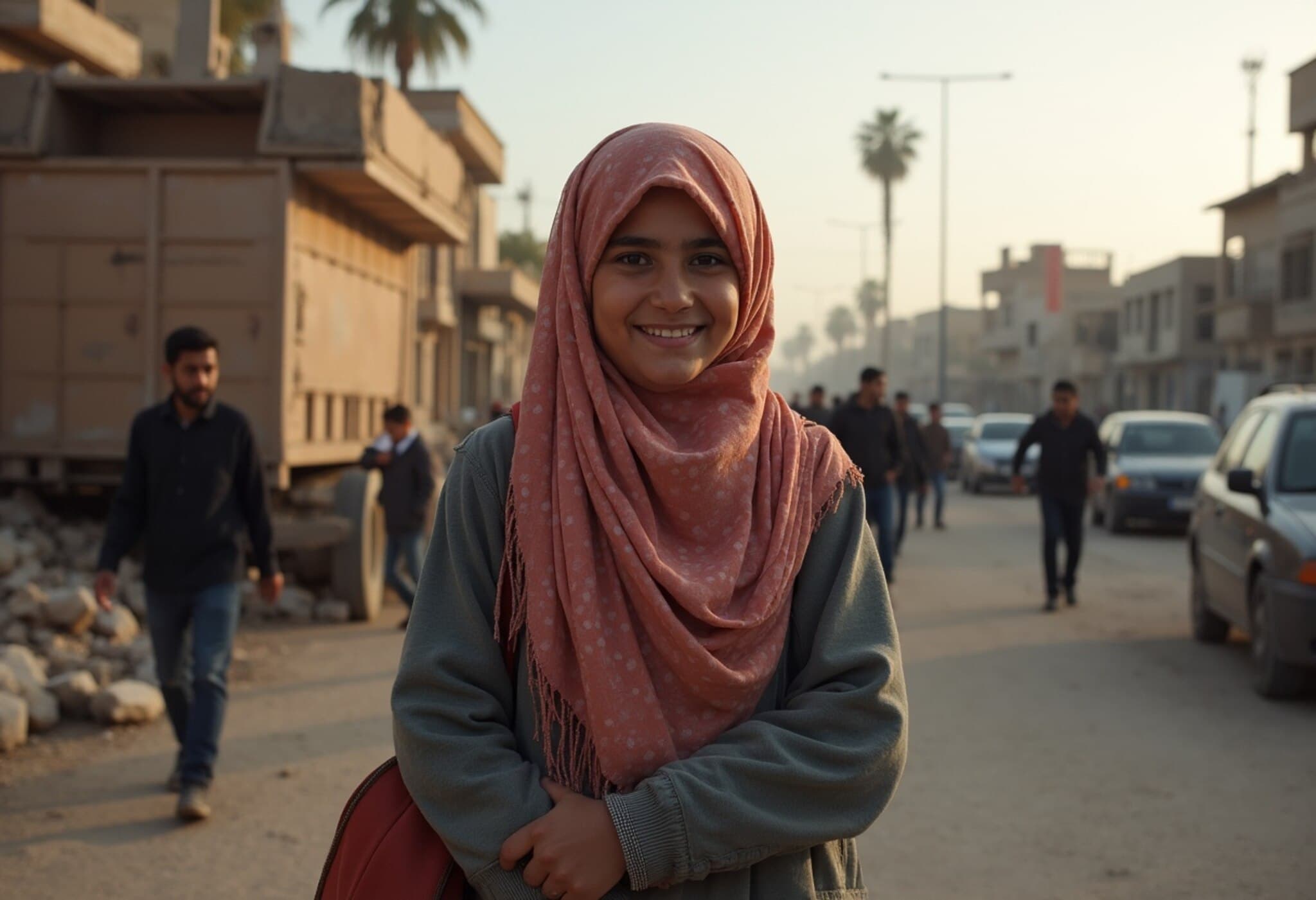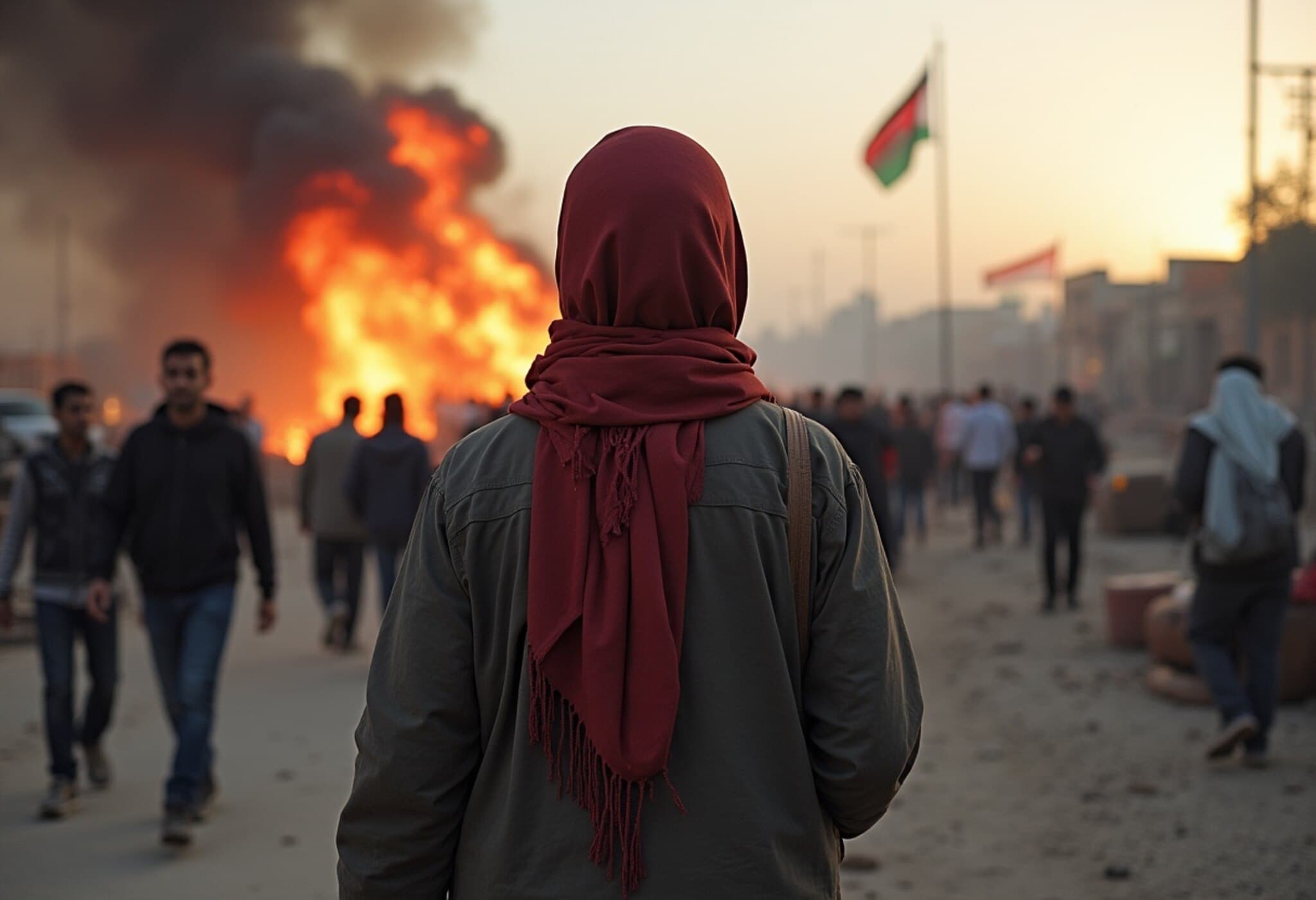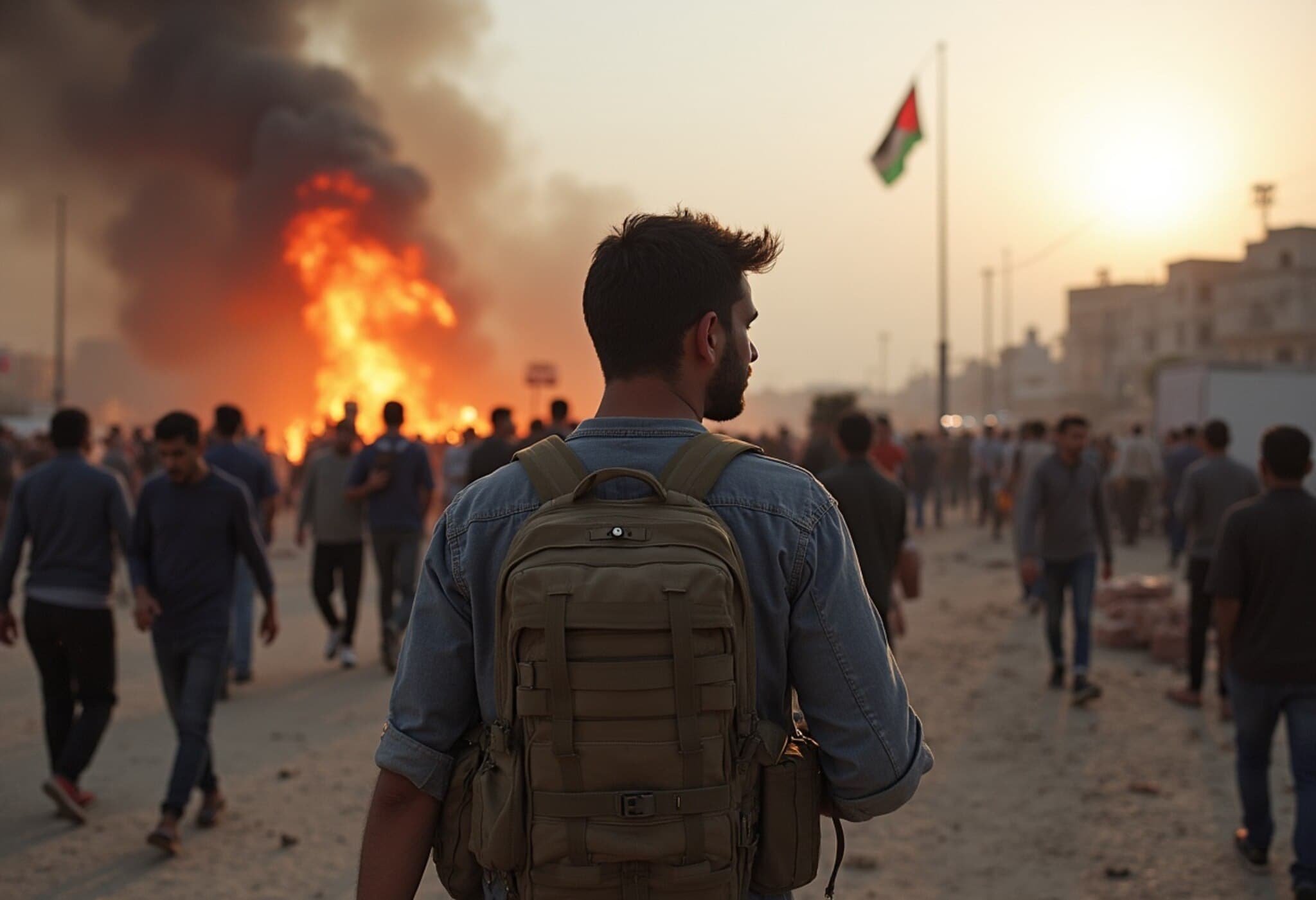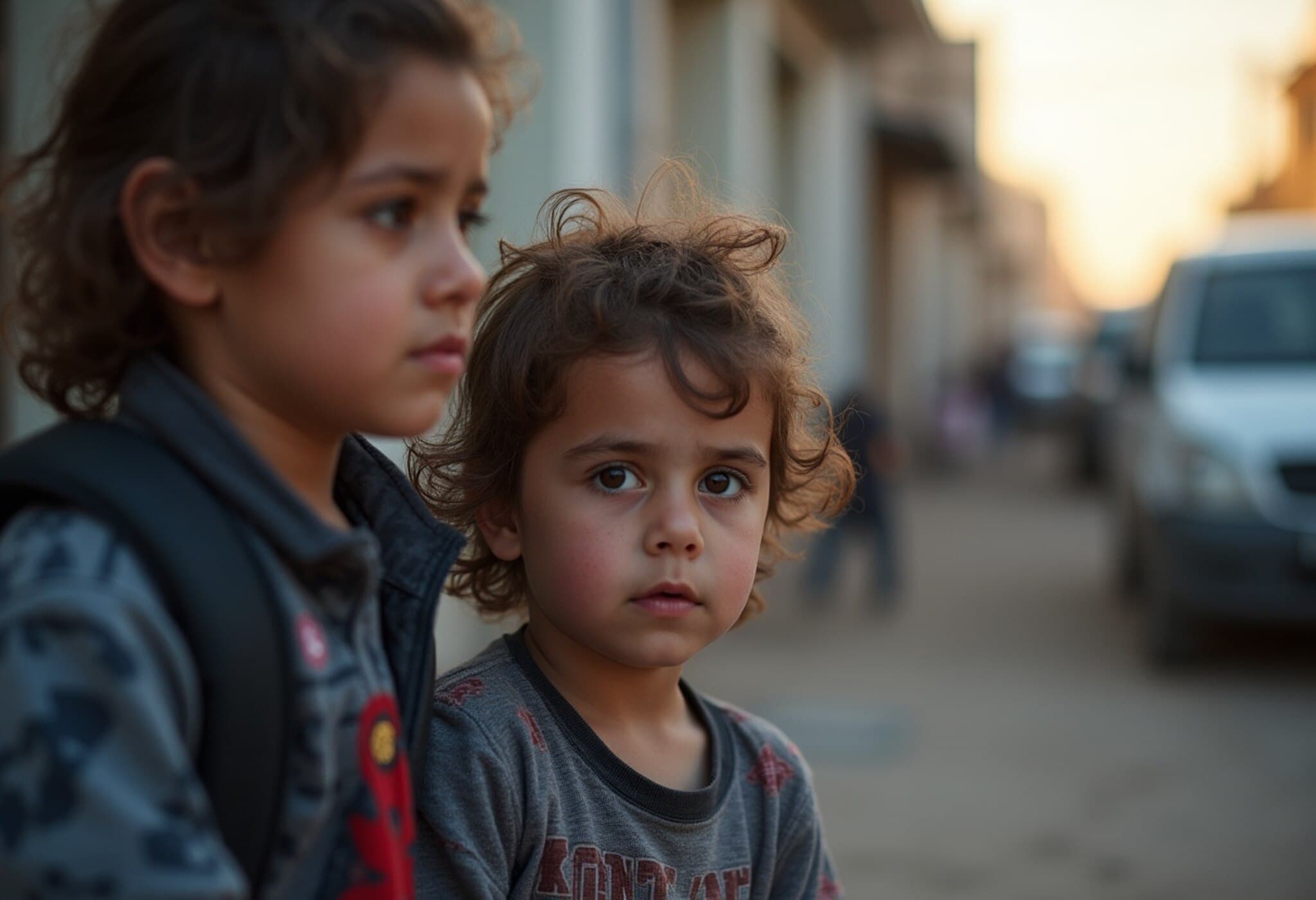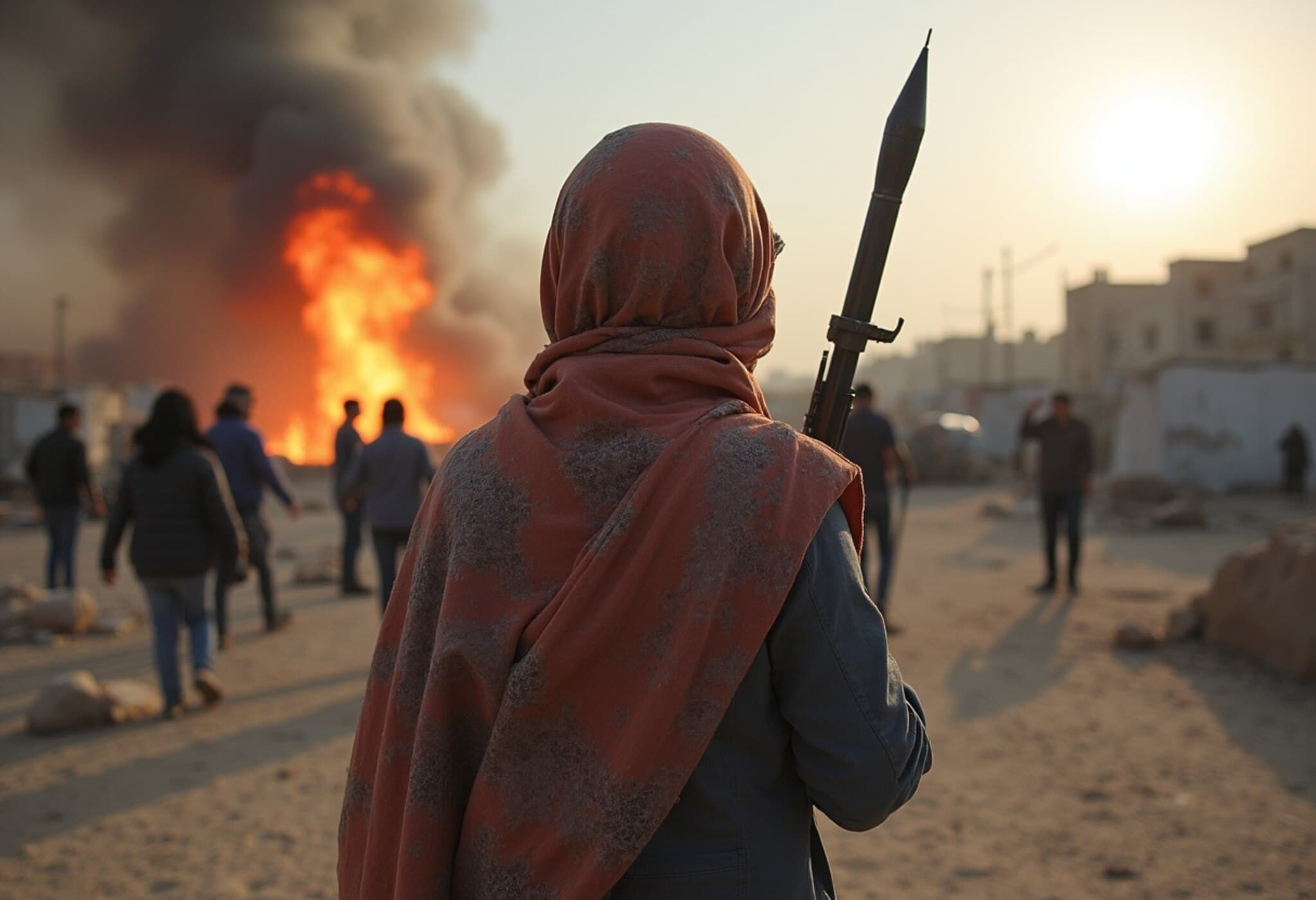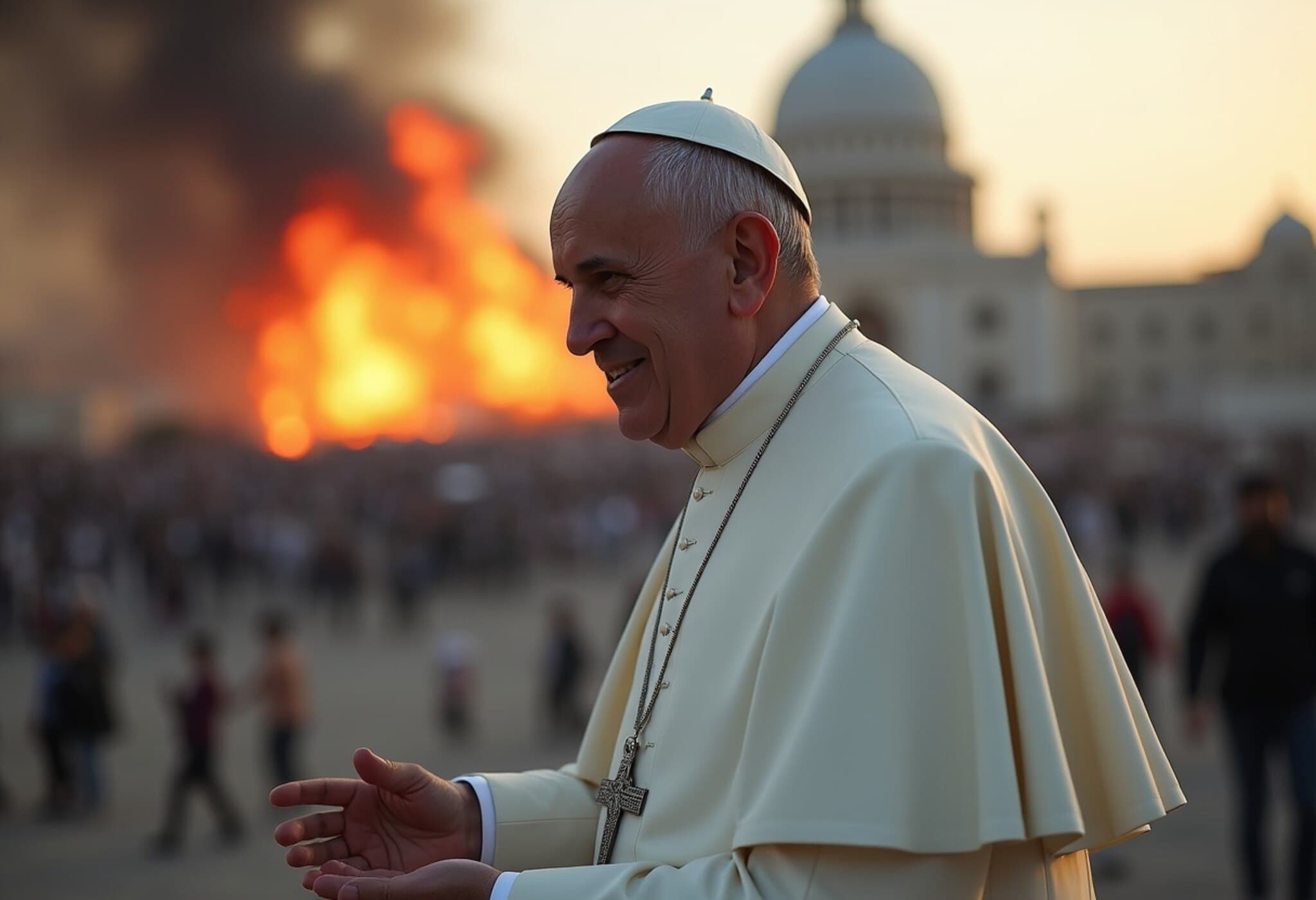Tragedy Strikes Gaza: Six Children Killed While Collecting Water
In a heartbreaking incident that underscores the devastating human cost of ongoing hostilities, an Israeli missile strike in Gaza's Nuseirat refugee camp killed at least six children and injured 17 others. According to local emergency services, the children were among a group collecting water from a vital distribution point when the missile hit on Sunday.
The Strike and its Aftermath
The Israeli military explained that their missile was intended to target an Islamic Jihad militant in the area, but claimed a technical malfunction caused it to miss by several dozen meters, tragically striking civilians instead. "The IDF regrets any harm to uninvolved civilians," their official statement read.
Ahmed Abu Saifan, an emergency physician at Al-Awda Hospital, confirmed the casualties, highlighting the fatal impact on young children dependent on scarce resources. Local eyewitness Ramadan Nassar recounted to the Associated Press that approximately 20 children and 14 adults were queued to collect water — often a vital yet dangerous daily chore, with many walking up to two kilometers just to fill their plastic containers.
Context: Water Crisis Deepens Amid Conflict
This deadly event occurred against a backdrop of worsening water shortages in Gaza. Fuel deficits have incapacitated desalination and sanitation plants, forcing the population to rely on distribution centers for drinking water. The destruction and blockade continue to compound humanitarian suffering, with limited access to safe water reflecting the broader infrastructure collapse.
Wider Casualties and Unrelenting Violence
Only hours after the water point strike, Israeli attacks reportedly killed 12 more Palestinians at a market in Gaza City, among them a prominent hospital consultant, Ahmad Qandil. The Israeli military has yet to comment on that strike.
Since the conflict erupted in October 2023, Gaza’s health ministry reports that over 58,000 Palestinians have died, including a significant proportion of women and children. The ministry's figures combine civilians and combatants, reflecting the complexity and tragedy of urban warfare.
Stalled Peace Negotiations and Rising Tensions
Efforts to broker a ceasefire through indirect talks in Doha have largely faltered. Both Palestinian and Israeli sources describe a deep divide over the terms, particularly regarding Israeli withdrawal from Gaza. Israeli Prime Minister Benjamin Netanyahu reiterated in a recent statement that Israel would not relax its core objectives: the release of hostages, dismantling Hamas, and ensuring future security threats from Gaza are neutralized.
Meanwhile, discussions around relocating hundreds of thousands of Gazans to the southern Rafah region have raised serious concerns about forced displacement—an issue which would likely ignite international criticism and raise complex legal and ethical questions.
The Human Cost: Voices from Gaza
Amid the ongoing devastation, personal stories emerge. Anas Matar mourned the loss of his aunt and her children, killed early Sunday in a missile strike on their new home after they relocated following an evacuation order. "There is no safe place in Gaza," he lamented, capturing the bleak reality for millions trapped in the contested enclave.
Expert Insight: The Broader Implications
From a policy perspective, this incident highlights the profound challenges of urban conflict, collateral damage, and the urgent need for robust humanitarian safeguards. The strike on civilians collecting water — a basic necessity — raises critical legal and ethical questions about proportionality and the protection of non-combatants under international humanitarian law.
Moreover, the worsening access to clean water amid the siege aggravates public health risks, potentially triggering long-term crises beyond immediate conflict casualties. The international community faces difficult choices balancing pressure for de-escalation with the geopolitical complexities at play.
What Lies Ahead?
Until a durable ceasefire and comprehensive peace agreement can be reached, civilians in Gaza remain caught in the crossfire. The ongoing violence and infrastructure destruction risk deepening humanitarian despair and entrenching cycles of resentment.
Urgent questions persist: How can fighting halt without compromising Israeli security concerns? What pathways exist to safely supply essential resources to Gaza's population? And how will international actors respond to the mounting humanitarian emergency?
Editor’s Note:
This tragic attack on children striving to meet their basic need for water starkly illustrates the human toll of conflict often obscured by political narratives. Beyond the immediate loss lies the wider story of Gaza’s spiraling humanitarian crisis and the daunting challenge of securing peace. As dialogues stall and lives are lost, these questions must remain central to global discourse — for the sake of both justice and humanity.
Article based on reports from Reuters and Associated Press.

